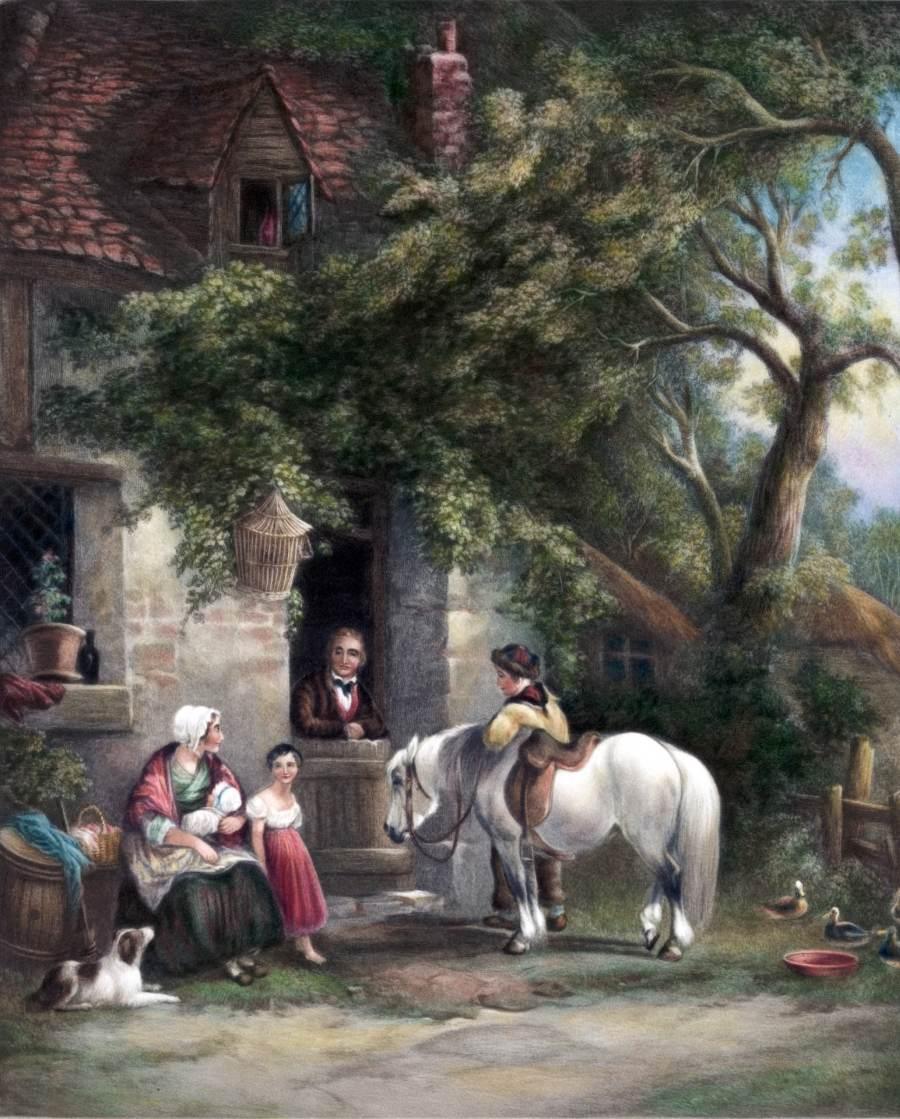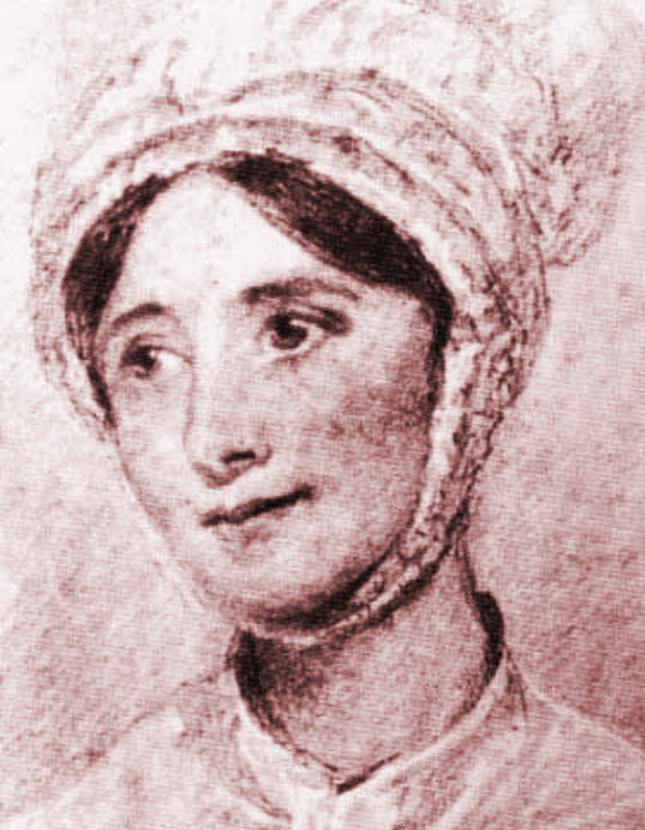Jane Austen and the Oliphant in the Room
by Alice Chandler, author of Aunt Jane and the Missing Cherry Pie 
I do apologize for the pun in my title. The Olifant I refer to is Margaret Olifant (1828-1894), a prolific and popular nineteenth-century writer and said to be Queen Victoria’s favorite novelist. The reason that I figuratively place Olifant in the same room as Jane Austen is that she was such a trenchant and perceptive critic of Austen’s work. Austen was not always fortunate in her woman critics during the century after her death. While famous male authors lauded her and often compared her work to Shakespeare’s, some notable women writers were very critical of her writing. Her contemporary Mary Mitford, whose mother actually knew Jane Austen, was well-known in her time for her charming short novel, Our Village. Mitford disliked Elizabeth Bennett as a character and criticized “the entire want of taste that could produce so pert, so worldly a heroine as the beloved of such a man as Darcy.”
Charlotte Bronte was particularly negative about Austen. She compared her writing to a “daguerrotyped portrait of a commonplace face” and complained that her work “lacked poetry.” She thought that Austen’s novels delineated “the surface… lives of genteel English people.” But they ignored “what throbs fast and full... what the blood rushes through… the unseen seat of life.” Or to put it more simply, her books had no heart. Elizabeth Barrett Browning was similarly, though less violently, critical of Austen’s passionlessness. She found her novels perfect but shallow.
Which was the more accurate view of Jane Austen? Was she worldly, tasteless, and pert? Or shallow, bloodless and commonplace? Or as other critics put it, was she perhaps too refined and genteel? Of all the nineteenth-century women critics, Margaret Oliphant seems to me to hit it just right—to see and admire Austen’s delicacy, but to see her pointedness as well. Mrs. Olifant’s Jane Austen is far from having no heart. But her Jane Austen also has a mind—a mind that can bridge the seeming distinction between being feminine and being a truth-teller. As Olifant so accurately puts it, “Nothing but a mind of this subtle, delicate, speculative temper could have set before us pictures which are at once so trenchant… so softly feminine and polite, and so remorselessly true.”
Oliphant’s description of the hypocritical Mr. Collins—the one who wants to marry Elizabeth in Pride and Prejudice—is almost as good as Austen’s own. As Oliphant describes him (in capital letters), he was a figure of “UNDISTURBED COMPLACENCY... TALL... GRAVE AND POMPOUS, WRAPT IN A CLOUD OF SOLEMN VANITY, SERVILITY, STUPIDITY, AND SPITEFULNESS.”
Olifant’s reflections on Jane Austen go deeper, however, than purely literary criticism. Her further comments on the novels reflect the same insight about women’s lives that Anne Elliott expresses at the end of Persuasion, when she compares men’s opportunities for bold and outward action with women’s patient (and passive) capacity only “for loving longest…when hope is gone.” Olifant understands Anne Elliott’s patience--perhaps the novel should have been called Patience instead of Persuasion—but relates it far more clearly to the continuing powerlessness of women in both Austen’s era and in her own. Her Jane Austen has a:
fine vein of feminine cynicism…altogether different from the rude and brutal male [version]… It is the soft and silent disbelief of a spectator who has to look at a great many things without showing any outward discomposure, and who has learned to give up on any moral classification of social systems… She is not surprised or offended…. when people make evident how selfish and self-absorbed they are or when they inflict social cruelties without realizing it. She is essentially feminine in a world where women can only look on and do nothing…[except to say] a softening word now and then, and to make the best of things, and wonder why human creatures should be such fools… Such are the foundations on which Jane Austen’s cynicism is built.
How Olifant herself coped with the limitations on women’s sphere of action is a sad and interesting story in itself. Born to a middle-class Scottish family in 1828, she started writing at 16, published her first novel at 21, married her cousin at 24, and was widowed at 31. Three of her six children died in infancy, and she sadly outlived the other three children as well. Unlike Jane Austen who signed her works only as “by a lady,” Olifant put her name to her works and, indeed, could not have survived financially without them. She published more than two dozen novels, almost 70 short stories, and scores of articles, biographies, and historical and critical works. Her views of women’s role in society evolved sharply over her lifetime and were presumably influenced by her having to earn her own living as a writer.
She began, as she wrote in an 1850s article, by believing that “God has ordained…one sphere and one kind of work for a man, and another for women.” But in her later works unmarried women characters, such as Miss Marjoribanks in the novel of that name, do take on a man’s responsibilities and become the dominant figures in local society. Her views on the indissolubility of marriage also may have altered over time. Although Olifant is adamantly opposed to divorce in her writings of the 1850s, her 1883 novel The Lady Lindores ends with the heroine justifiably rejoicing that her evil and abusive husband is dead. How Jane Austen’s views might have changed over time is, of course, an unanswerable question. Persuasion shows her more explicitly addressing the issues of social class and women’s sphere of activity than her earlier novels do. But that is another question, which even Margaret Olifant could not answer.
Alice Chandler is the author of Aunt Jane and the Missing Cherry Pie: A Jane Austen Mystery for Children, available here



1 comment
[…] first post from them is from Alice Chandler, originally posted here, about Margaret Olifant, who was critical of Jane Austen’s work. However, compared to some of […]
Guest Post: Jane Austen and the Oliphant in the Room by Alice Chandler, author of Aunt Jane and the Missing Cherry Pie
Leave a comment
This site is protected by hCaptcha and the hCaptcha Privacy Policy and Terms of Service apply.